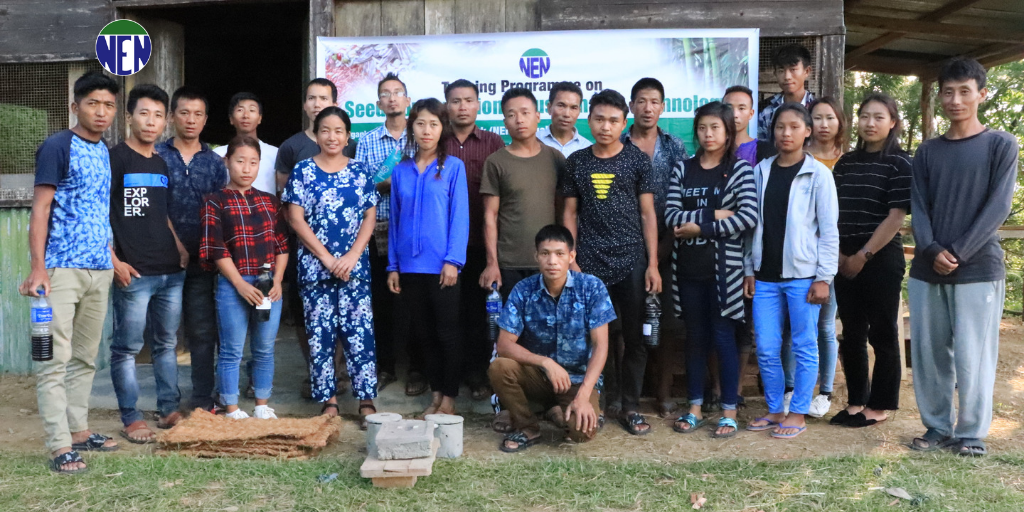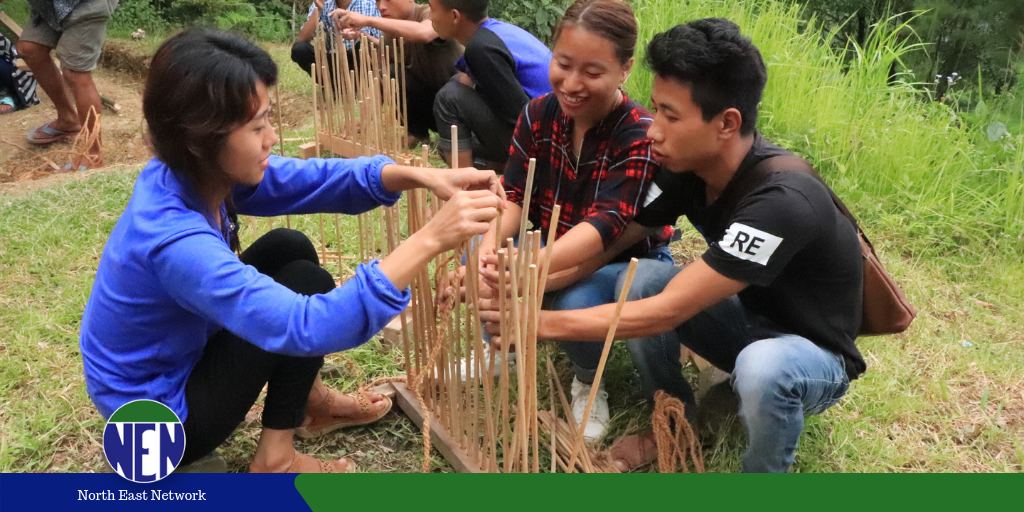Chizami, Nagaland
Can technology be sustainable? Turns out it can! Sustainable technology relies on resources that are either renewable or so abundant that we can treat them as such. For technology to be sustainable also means that using it does not have any long-term adverse impact on the environment (populationmatters.org). What is surprising to most of the world’s urban-dwelling population is that there is nothing new about the concept. Indigenous communities have devised low key but effective green tech for time immemorial without university training and fancy research labs!
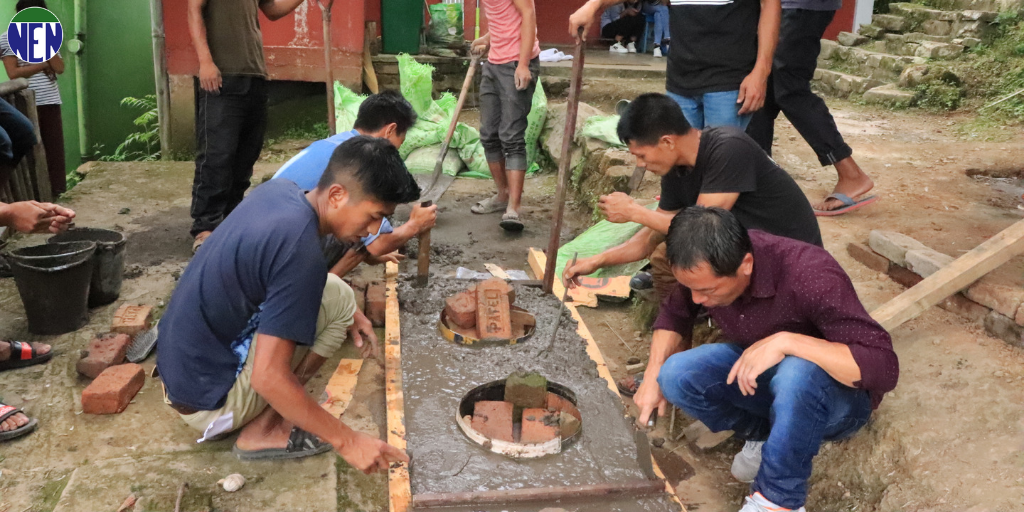
Taking forward our faith in all things traditional to combat consumerism and resource depletion, NEN brought together twenty community youth from the villages of Fakim, Phor, Chizami, Enhulumi, Thurutsuwu and Phughi in Nagaland for training on seed conservation and sustainable technology. We understand that globalization is wiping out traditional knowledge and has the youth as easy targets. This was an attempt to restore their faith in systems that will go a long way in preserving their ecology and to equip them with knowledge that they can continue passing on to their communities and future generations.
The three-day event was held at NEN Resource Centre, Chizami and was organised in collaboration with the Agriculture Technology Management Agency (ATMA) Phek and in association with the State Agriculture Management & Extension Training Institute (SAMETI) Nagaland and National Institute of Agricultural Extension Management (MANAGE). It was is sponsored by the Ministry of Agriculture and Farmers’ Welfare, Government of India under the Skill Training of Rural Youth (STRY) scheme.
Ms Alole Vero, Assistant Technology Manager, ATMA Phek in her keynote address encouraged the participants to make optimum use of the training by implementing their learning back in their respective communities.
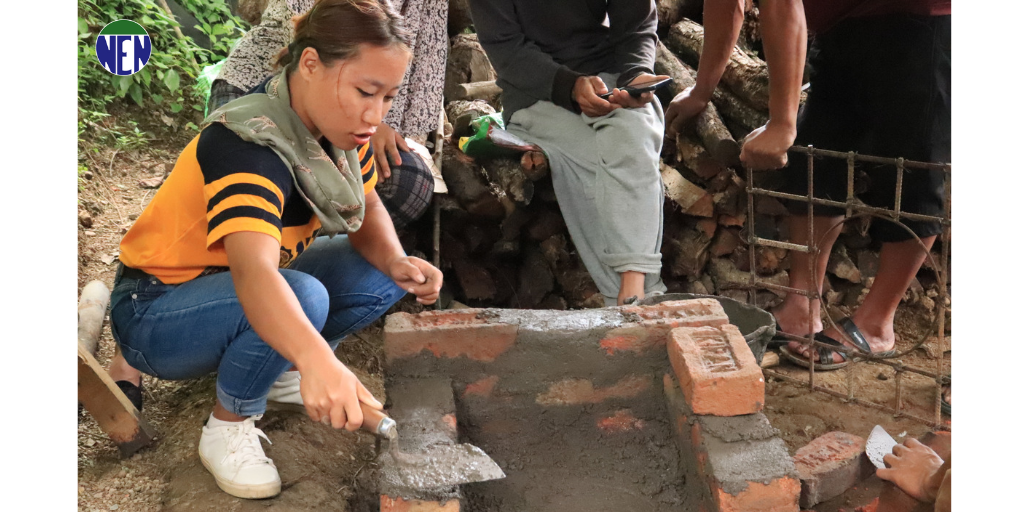
As Agriculture is one of the most important occupations of the rural Naga communities, the first day focussed on understanding the current issues and challenges confronting the agricultural system. An area wise group discussion brought forth a lot of common issues, prominent among them were the decrease of traditional seed varieties, climate change affecting the availability of water, invasion of newer plant species earlier unknown, increasing cash cropping and use of fertilizers. That led to a further discussion on seed conservation which has become crucial to safeguarding our indigenous way of food and farming systems. The session was facilitated by Mr Stephen Gangmei, one of our Project Associates. The group followed this with a visit to the Community Seed Bank at Chizami to gather firsthand knowledge of such practices.
Bamboo is one of the most abundant resources in Nagaland. There are varying species of bamboos found in the state which if properly utilised can be sustainable resources for the communities. Hence this became the next key area that was addressed. Participants were given the knowledge of using bamboos through various innovations like the preparation of bamboo vinegar and bamboo charcoal using locally available resources and were led by Mr Zekote Naro. Among other things, he demonstrated nursery preparation using local resources such as topsoil, vermicomposting and burnt husks, producing maximum using minimum space. Participants also learnt doormat making with coconut rope.
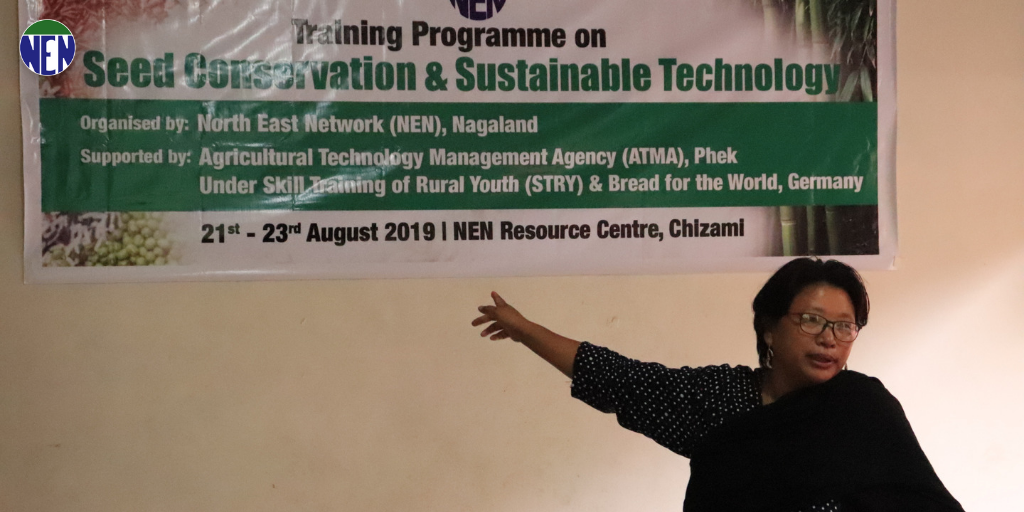
On the day 3 participants learnt to make fuel-efficient kitchen stoves in a scientific way. This session was designed to educate the participant on the impact communities could face with massive yearly consumption of firewood for domestic uses and how to reduce it.
Ms Seno Tsuhah, our HR and Finance Director, closed the exhilarating three days with words of encouragement to the participating youth to take the learning at different platforms in their respective communities.
